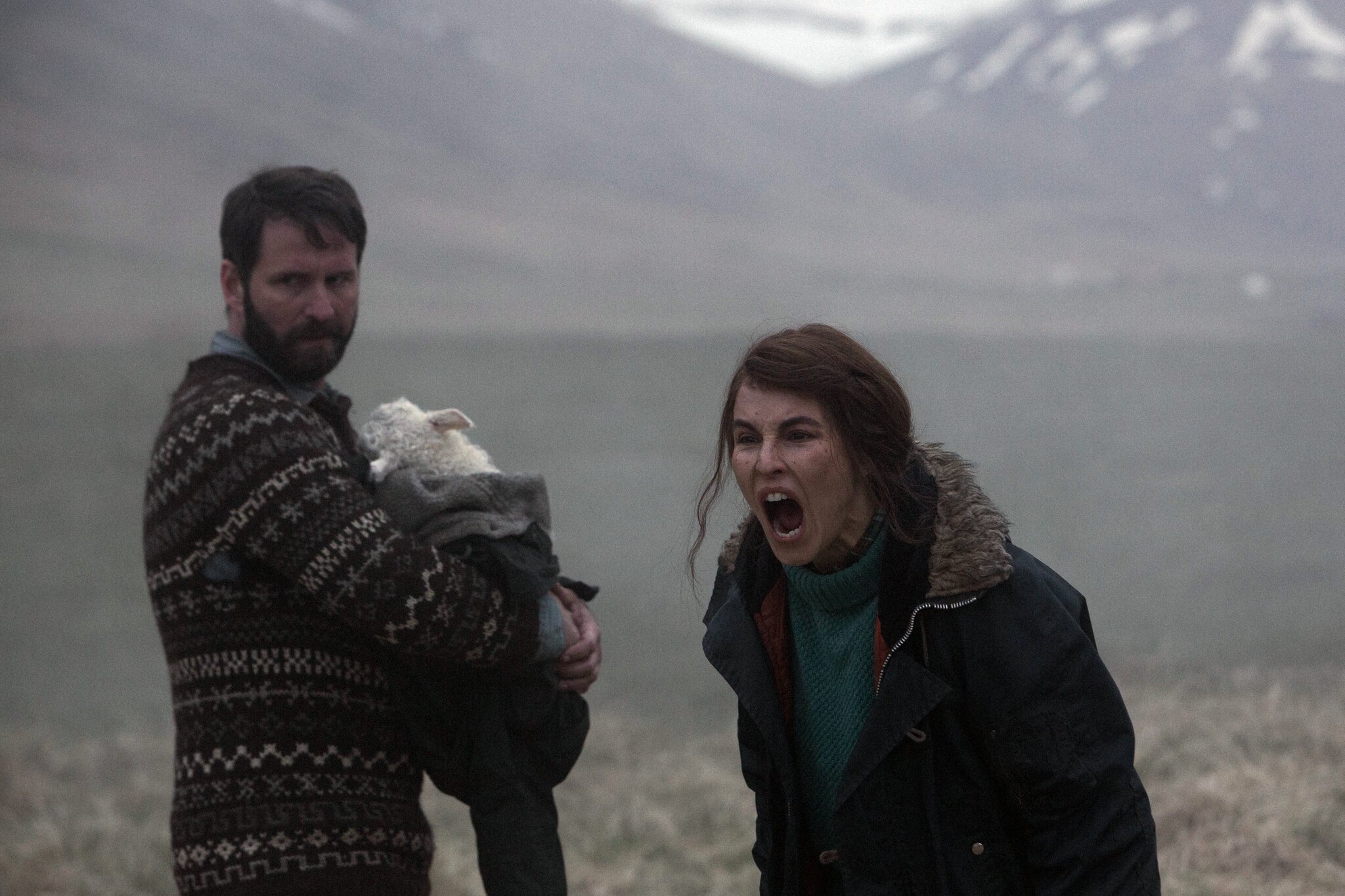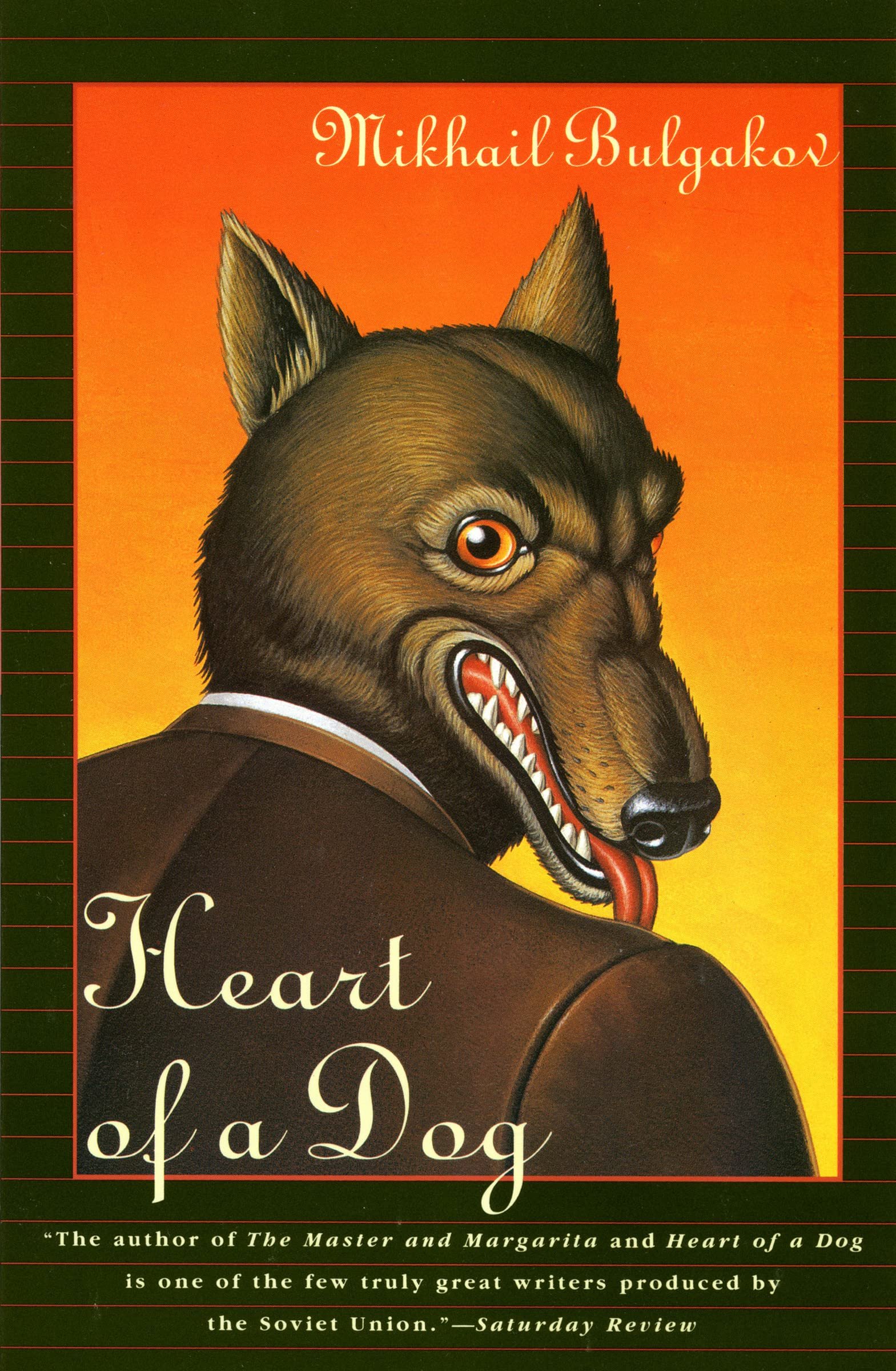March Wrap Up: Octavia Butler, Dune Part 2, 3 Body Problem + more
March wrap-up time! In this video, I talk about the books I read and the films & TV shows I watched in March.
March wrap-up time! In this video, I talk about the books I read and the films & TV shows I watched in March.
LoveStar by Andri Snær Magnason is a weird and wacky Sci-Fi novel translated from Icelandic by Victoria Cribb.
The book follows a couple, Indri and Sigrid, who love each other desperately until they are calculated apart by an algorithm (think Tinder but without free will), as well as the enigmatic LoveStar (CEO of LoveStar) as he searches for answers after commercializing literally everything in human existence (well there about anyways).
LoveStar is set in an impossibly modern and rather dystopian world of tech and rampant capitalism; think Black Mirror meets 1984, Brave New World by way of the works of Douglas Adams and Good Omens by Terry Pratchett and Neil Gaiman.
Lamb or Dýrið (The Animal) is an Icelandic film directed by Valdimar Jóhannsson and stars Noomi Rapace, Hilmir Snær Guðnason and Björn Hlynur Haraldsson. Click here to watch my video version of the review.
First things first, the film starts at Christmas, which, if you are just slightly aware of any Icelandic folk tales, can’t be a good thing. Kids are told stories about trolls who come down from the mountains to kidnap naughty children. Then there are the 13 Yule lads, who are pretty much cheeky versions of Santa Claus who unleash havoc on the run-up to Christmas - though it must be said that they were demonic trolls who would prey on children before the 1900s. A quick flick through Jón Árnason’s Icelandic legends and fairy tales (Íslenzkar Þjóðsögur og Æfintýri) will tell you that pretty much every folk tale happens around Christmas.
Essentially the festive season is ripe for the folk horror genre. Though in Lamb, that’s where the traditional folk tale influence ends as the rest is just weirdness from the mind of the director and writer. But you could see the grunting and huffing entity (later revealed to be a Ram Man) who impregnates an unsuspecting ewe, almost as the reverse of the folklore around stealing children at Christmas.

Image: A24
You can tell that this film was a long time in the making as the story, which was written by Jóhannsson and novelist Sjón (who also worked his magic on Robbert Egger’s The Northman), is meticulously crafted.
Layers unfold at precisely the right moment to reveal important plot points like, for example, a short conversation towards the beginning of the film about time travel at dinner. Ingvar says that even if it were possible one day, he’d not really be in a rush to see the future because he likes the present just fine, but María wistfully says that going to the past would be just as possible - it’s easy to infer here that there’s something painful in their shared history, something he’d like to avoid but that she would perhaps revisit to correct? Later, it is revealed that they had a daughter Ada who died, and the humanoid Lamb is essentially their do-over at parenting.

Image: A24
Centring a “horror story” (though is it really a Horror film?) around the concept of grief is nothing new, but the way in which the subject matter is executed in Lamb is wholly original. The cute little hybrid Lamb Ada is harmless; in fact, she’s quite delightful, so much so that Ingvar's brother Pétur who arrives at the farm, is soon won over by the disarmingly gentle creature (not before trying to kill her, but that’s beside the point… kind of).

Image: A24
However, it must be noted that Ada’s presence is haunted by a brooding and menacing soundtrack, which is coupled with sweeping vistas of gorgeous Icelandic landscapes that dominate the screen in all their ominous grandeur and sparseness and small frigid domestic interiors that simmer with a rising drama, both captured in cold-toned colour palettes. It’s a concoction of elements that signals to the audience that all is not fine and creates tension that slowly builds to a crescendo by the close of the film.

Image: A24
As a bookworm and as someone who loves to delve into meaning via often overlooked things like Mise en Scene, any film that features books instantly gets my attention.
In one scene, María is seen reading Mikhail Bulgakov’s Heart of the Dog which is a pretty fantastic literary nod because the Soviet-era satire is about a man who performs an operation on a dog to make it more human-like, for it only to backfire and ruin his life. The plot of Lamb follows a very similar course.

Image: A24


The other book featured is a popular Icelandic fairy tale called Sagan af Dimmalimm (The Story of Dimmalimm); in one scene, Ingvar reads a section of the book out loud to Ada.
Interestingly, you could see the end of the film as a twist on this fairytale. In the book Princess Dimmalimm befriends a swan which then dies one day, but it soon transpires that the swan was actually a boy all along; he was the victim of a curse. In the film, Ada’s human father dies, and then she goes away with her real father, a minotauresque Ram man. The animal replaces the man instead.
Also, rather strikingly, there is a harsh but very true sentiment within the pages of The Story of Dimmalimm - “En allt breytist í þessu lífi” or in the English translation of the story, “But nothing stays the same for very long in this life”. And while María, Ingvar, Ada and Pétur (to a certain extent) find happiness as a family, their days are numbered.

Another literary connection you could make is in the country’s rich storytelling history of the Medieval Icelandic Sagas (Íslendingasögur). In these stories, blood feuds are settled with revenge, supernatural occurrences pop up all over the place, and fate is all-consuming. One particular example is Grettir’s Saga (Grettis saga Ásmundarsonar).
There is a scene where Thorhall, a Farmer (much like Lamb’s protagonists), tries to locate his horses, but they mysteriously disappear; while looking for them, he ends up running into Glam, a Swedish shepherd who he has been advised to employ - which he does (things get terrible later, but that’s not the point right now), after this interaction, Thorhall finds his horses where he left them. It’s as if the very landscape of Iceland is working against Thorhall to make sure that he meets Glam so that the dark fate that is destined to befall him, Glam, and, in turn, Grettir can unfold.
Similarly, in the film, the lamb child Ada goes missing as a foggy storm descends over the farm; it’s again as if nature (this time the weather) is working against Ingvar and María to allow the hybrid lamb’s birth mother to spend time with her babe. This then sets in motion María’s subsequent execution of Ada’s birth mother and Ingvar’s death at the hands of Ram Man, who has taken on the task of avenging his kin, just like in the Sagas.

Image: A24
Another way to interpret the film is in the grand age-old literary tradition of the fable. María and Ingvar steal Ada the lamb from nature, María kills an innocent ewe, and Ram Man, who could be a stand-in for nature, retaliates to restore the balance. Lamb could then be seen as a climate change fable. Selfishly pillage nature, and there will be consequences.
In conclusion, this weird and wacky film has instantly become a new favourite, and I can’t wait to watch it again to see what other layers of meaning I can peal back from it.
Like always, let me know in the comments section what you thought of the movie too.
It’s been a slow start to the year in terms of reading, but I have nevertheless enjoyed all of the books I read this month, which doesn’t usually happen!
I read this super short story…like really super short (it’s 5 pages!) by Salih because I fell in love with his writing style last year after reading Seasons of Migration to the North, a powerful post-colonial novel set in Sudan. Again, he manages to evoke a sense of setting and lifestyle quite vividly, even in just 5 pages! Can’t wait to read The Wedding of Zein and any other translations I can get my hands on
I listened to The Bell Jar on audible, and I must say Maggie Gyllenhaal’s narration is perfection. I so was immersed in the story, and I really enjoyed her intonation and how she performed this very conversational and confessional text. As for the narrative itself, wow, it was dark…and uncomfortably relatable in some places. I’ve been through some dark times in my life and the toxic thought patterns and destructive behaviour that Esther partakes in felt a bit too close to home! But overall The Bell Jar is a powerful story and is perhaps overshadowed by the tragedy of Plath herself, she, unlike Esther, succeeded in taking her own life. Is succeeded even the right word here?
Norse Mythology has interested me for years, and it’s almost ridiculous that I have only just read it now. The main and one of the only surviving collections of Norse myths! Because Vikings, like the Greeks and other “ancient” civilisations, had a largely oral tradition, it is often many years later that the stories are written down. Such was the case with The Prose Edda; the believed author Sturlusson was a Christian and writing perhaps 400 years later! This makes the reading of Edda rather intriguing…or is that just my English Lit brain firing up again…ooh authorial intent…what can I infer from this.
It’s also worth noting that this text has inspired so much from J.R.R Tolkein’s legendary Middle Earth books (fun fact many names like Gandalf and Thorin (from The Hobbit) are taken from The Prose Edda!) to the wonderful American Gods by Neil Gaiman (and its fantastic TV adaptation which is currently airing its 3rd season on Amazon Prime). And, of course, you can’t forget Marvel, which with its hilarious and playful spin on the original mythology, has made Thor, Loki, Odin and Heimdall household names.
I enjoyed dipping in and out of The Prose Edda (which was the first Book Club pick, February’s selection will be announced soon!) while bundled under a blanket with a fire crackling…on my tv screen and sipping coffee. To borrow from the Danes, reading this book has been a wonderful dose of Hygge these past few weeks.
Disclaimer: The above links are affiliate links, so I do make a small commission if you make a purchase through them.

Let me know in the comments section what books and short stories you’ve read this month.